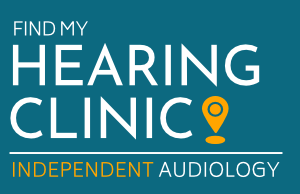Tinnitus: what is it and what can I do about it?

Tinnitus, a sound in the ears or the head that is not caused by an external source, is experienced by one in three Australians each year.1 Tinnitus is a sound that can be heard by the person with the condition, but not by other people around them. It is more prevalent than most people realise because you cannot tell someone has tinnitus simply by looking at them. For most people with tinnitus, it is just something that is there, and does not cause them any problems. However, it can cause distress and mental health issues with 45% of those with tinnitus experiencing anxiety, and 33% experiencing major depression.2 In 2024, February 5-11th is tinnitus awareness week. Given tinnitus can significantly affect a person’s life, it is important to know what it is, and how to seek help if you have tinnitus. While tinnitus is often heard in the ears, it is actually generated by the brain in response to an underlying condition. That condition can be hearing loss, ear pathology or injury, circulatory system conditions, or neck or jaw issues.
It can be a hissing, buzzing, ringing, or clicking and might be there all the time, or might come and go. Sometimes the brain ignores these sounds, and sometimes it will perceive them as a threat which can the cause a significant physical and emotional reaction to the tinnitus. Regardless of the type of tinnitus you experience, or whether it comes and goes, it is important to know that help is available if you need it. A good place to start in seeking help is with a check-up with your general practitioner, and a hearing assessment with your local independent hearing care provider.
Your GP can check your general health and determine if any underlying health conditions, or medications you are on, could be contributing to your tinnitus. It is always reassuring to know your general health is okay if you have a recent onset of tinnitus. Your local independent hearing clinic can do a full hearing assessment. This includes assessing your hearing and tinnitus, as well as discussing tinnitus treatment options with you.
There are a variety of tinnitus treatments available and the right solution for you will depend on your needs. It is important to know that if the first treatment you try is not successful, then there are other options available. Having a hearing test, understanding tinnitus, and being reassured that there is nothing concerning going on, may be all that is required. People who have both hearing loss and tinnitus often find using hearing aids can help with their tinnitus. Other people benefit from the use of sound therapy, or even cognitive behavioural therapy. If an underlying cause is found for the tinnitus, such as jaw or neck issues, ear wax occlusion, or an ear infection, then treating these issues is an important part of tinnitus management. This may require seeing another specialist such as a physiotherapist, dentist, or ear, nose, and throat specialist. By seeing your local independent hearing clinic, you can have a solution and management plan that is tailored for your individual needs.
Many people have tinnitus and often people think they need to deal with it alone, or that there is nothing they can do about it. While not everyone’s tinnitus requires treatment, if you are being bothered by it, there is help available. Your local independent hearing clinic is a great resource for helping you manage your tinnitus and working out what the next steps should be.
